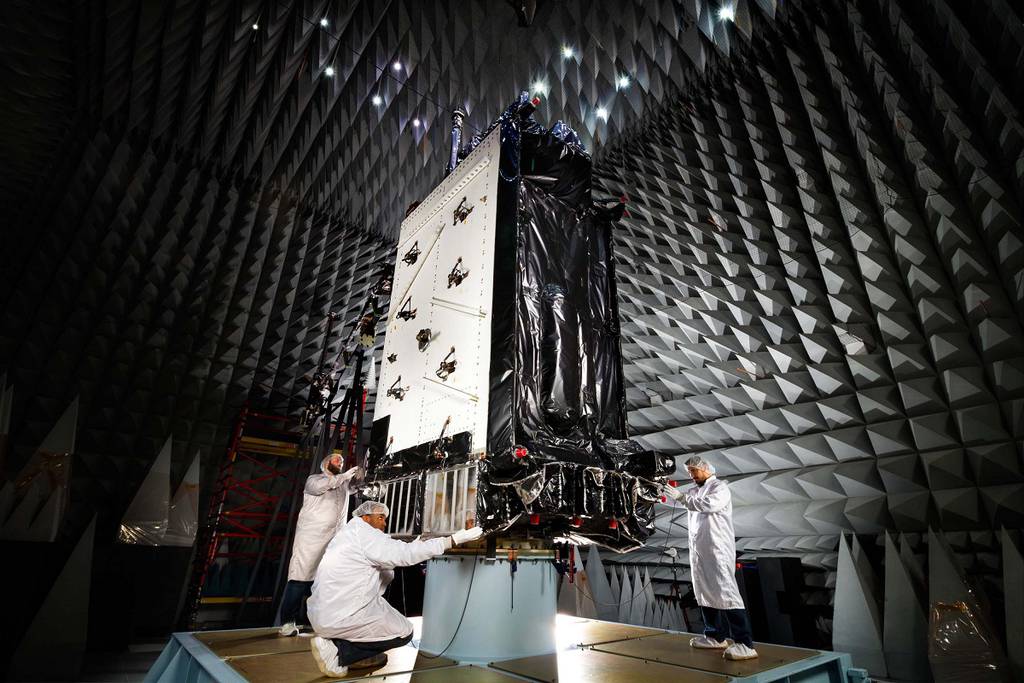WASHINGTON — The U.S. Space Force awarded Raytheon Intelligence & Space a $228 million contract for the follow-on control system for the GPS satellite constellation.
The contract awarded April 30 extends Raytheon’s work on a new ground system for the GPS constellation known as the Next Generation Operational Control System (OCX). The company already delivered Block 0 and is working on Blocks 1 and 2. This contract expands the company’s work to Block 3F, which will incorporate regional military protection and command and control for the future GPS III follow-on satellites.
“OCX is an adaptive architecture designed to evolve to combat emerging threats. OCX 3F is a great example of modifying the OCX Blocks 1 and 2 software baseline to launch and incorporate the GPS IIIF enhanced satellite capabilities,” said Barbara Baker, senior materiel leader of the Space and Missile System Center’s (SMC) Production Corps Command and Control Systems Division.
Initially awarded a contract in 2010, Raytheon’s work on the $6.2 billion OCX program has suffered from major delays. After learning that the program would likely exceed its cost by 20 percent in 2016 due largely to software issues, the Pentagon declared a breach of Nunn-McCurdy statutory thresholds for weapon program price increases. According to a 2019 Government Accountability Office report, the program was already five years behind schedule, and the watchdog warned that the program was vulnerable to further delays.
In response to those issues, the Air Force awarded Lockheed Martin a contingency operations contract in 2016 to upgrade the operational control system, which currently controls the GPS constellation. Those upgrades enable the ground system to work with the GPS III satellites, allowing operators limited access to those satellites’ advanced capabilities. That interim solution was approved for everyday use in March 2020.
Raytheon delivered OXC Block 0 — the system’s launch and checkout system — in 2017. The OCX software was completed in 2019.
Then in March 2020, the Space Force announced that it would pay $378 million to replace OCX’s original computer hardware after the vendor was sold to a Chinese company. Although the U.S. Air Force had been aware of the issue for years, the service opted to hold off on purchasing new hardware until the program’s other issues had been addressed.
According to SMC, OCX Blocks 1 and 2 are scheduled for delivery in 2022. Block 3F delivery is expected July 2025.
Nathan Strout covers space, unmanned and intelligence systems for C4ISRNET.








